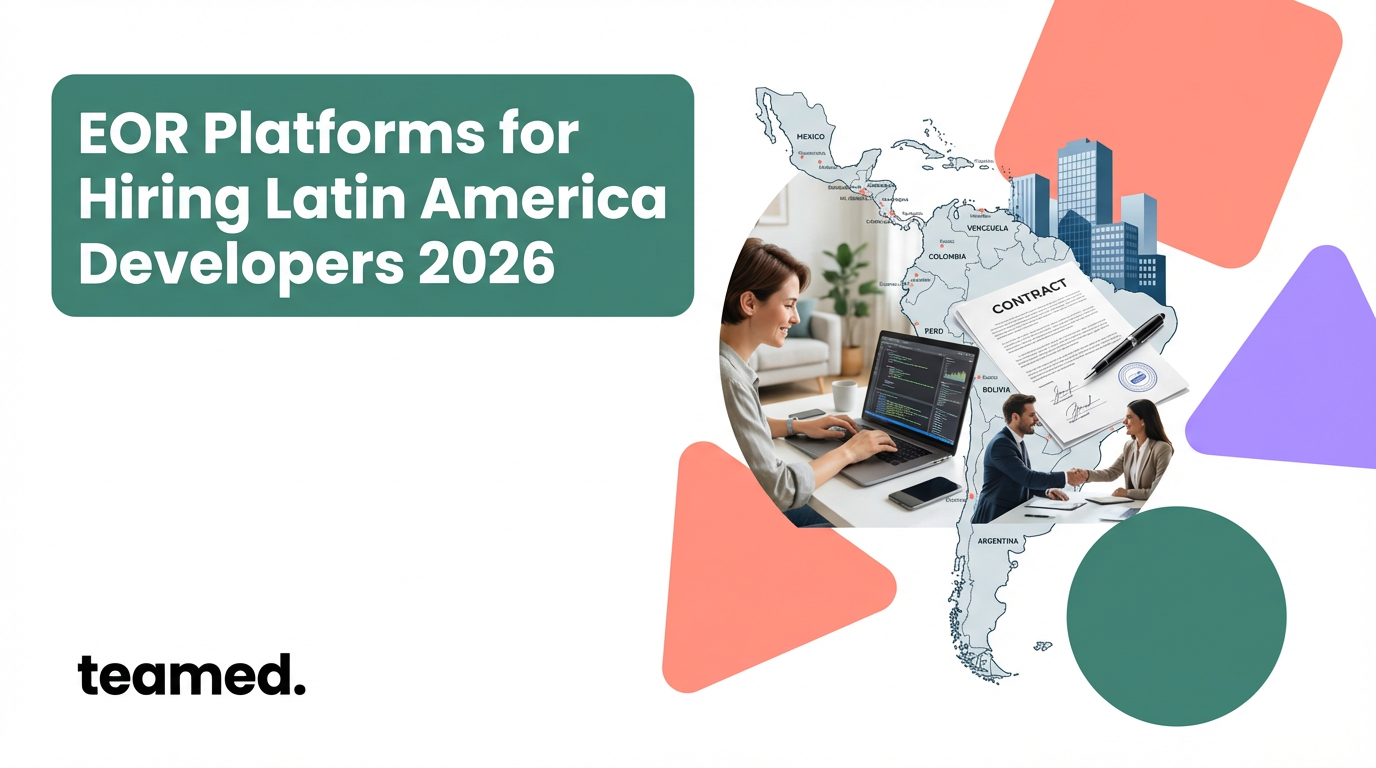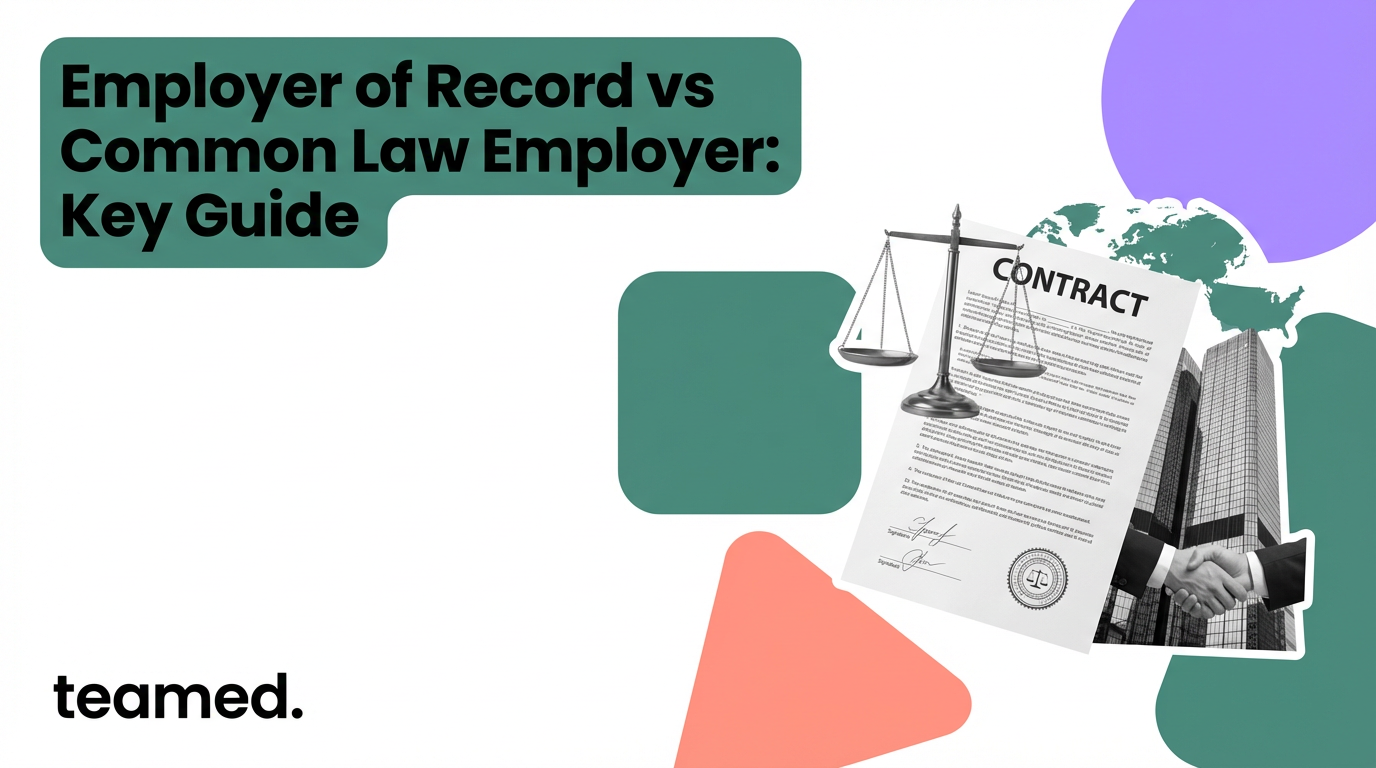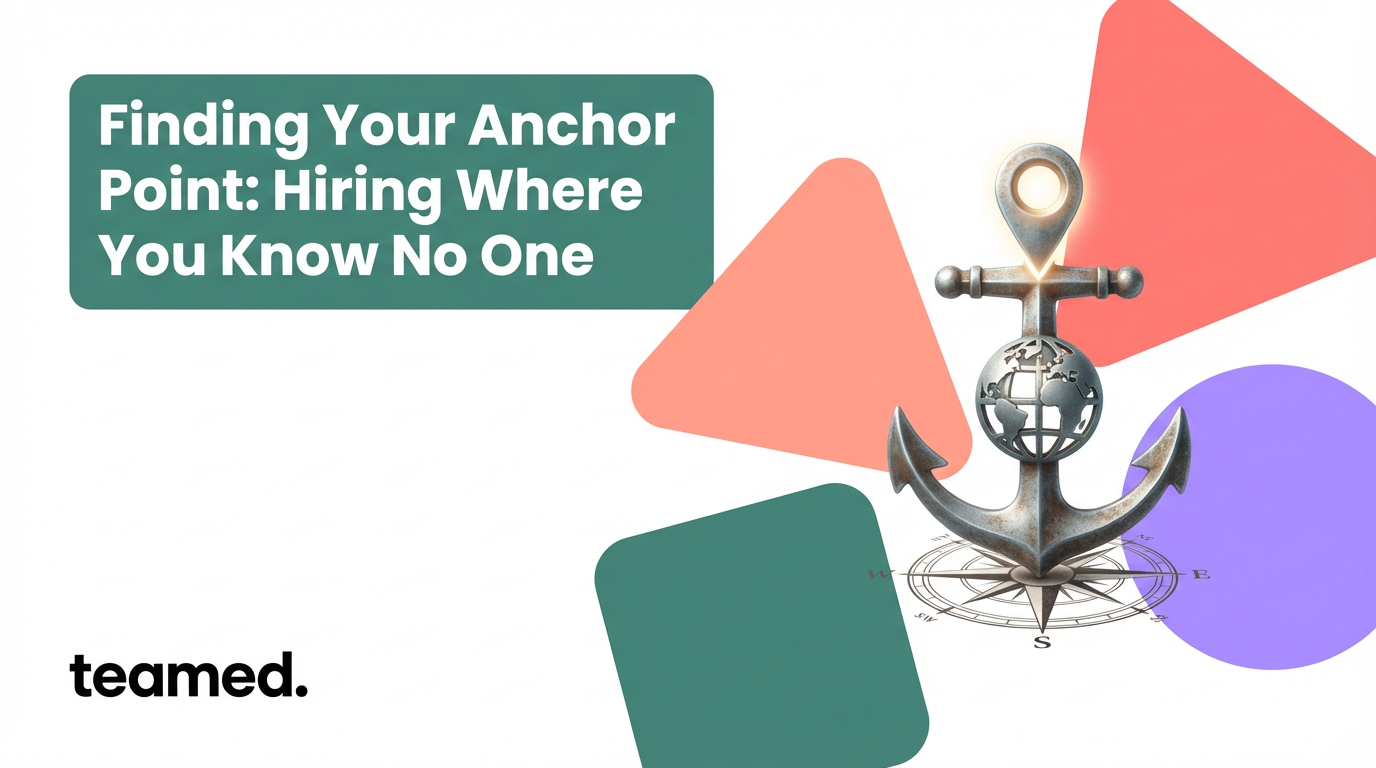As you venture into blockchain technology, particularly in India, you might need top-notch blockchain talent. The blockchain industry in India is growing at a staggering rate, outpacing the global average. According to an Outlook India report, the blockchain technology market in India is expected to grow at a CAGR of 57% during 2021-2026.
This guide will help you quickly navigate this complex landscape and find the right talent for your business.
Understanding the Blockchain Technology Landscape in India
India's blockchain industry is growing, with numerous startups and established brands adopting blockchain technology. Even the Reserve Bank of India is exploring the potential of a digital rupee using blockchain technology.
This vibrant ecosystem offers a conducive environment for blockchain developers to thrive.
Identifying the Specific Skills and Expertise Required in Blockchain Developers
When you're looking to hire blockchain developers, it's crucial to understand the unique set of skills they need. These include proficiency in programming languages like Solidity and Python and understanding data structures, cryptography, and distributed ledger technology. Familiarity with blockchain platforms and implementing smart contracts are also essential.
Moreover, developers should have a solid understanding of blockchain principles like decentralisation, immutability, and transparency.
Defining Job Requirements and Skills
Blockchain developers are responsible for various tasks, including developing and optimising blockchain protocols, crafting the architecture of blockchain systems, and developing smart contracts and web apps using blockchain technology.
They also need to ensure the security of the entire system. Depending on your organisation's needs, they may also be required to design and develop the blockchain network, create front-end interfaces for DApps, or integrate the blockchain with existing systems.
Identifying Key Technical Skills and Knowledge Areas
Key technical skills for blockchain developers include:
- Proficiency in blockchain platforms such as Ethereum or Hyperledger. This includes understanding the core concepts of blockchain technology, such as distributed ledgers, consensus algorithms, and smart contracts.
- Understanding of smart contracts. Blockchain developers need to be able to write and debug smart contracts.
- Familiarity with front-end and back-end development. Blockchain applications are typically developed using a combination of front-end and back-end technologies. Blockchain developers must be familiar with front-end and back-end development frameworks and languages.
- Knowledge of cryptography and data security. Blockchain technology relies on cryptography to secure data. Blockchain developers need to have a strong understanding of cryptography and data security concepts.
Determining Desired Qualifications and Experience Levels
While a degree in computer science or a related field is often desired, many skilled blockchain developers may need formal education due to the field's novelty.
Therefore, practical experience in blockchain projects, proven through a robust portfolio, can often be more valuable.
Searching and Sourcing Blockchain Talent
Exploring Online Platforms and Communities for Blockchain Developers
Online platforms like LinkedIn, GitHub and blockchain-specific job boards like CryptoJobs, like CryptoJobs, BlockchainDevJobs, and Upwork can be excellent sources for finding blockchain talent.
Blockchain communities like Superteam DAO, Foundership, Shardeum, etc., are great places to find passionate professionals.
These platforms allow you to reach a broad audience of professionals and can effectively source potential candidates.
Networking with Industry Professionals and Attending Blockchain Events
Networking at blockchain events like ETHIndia, Polygon Connect, etc. and community meetups can help you connect with professionals in the field.
These events are also excellent opportunities to stay updated with the latest trends and developments in the blockchain industry. Participating in these events can help you build a strong network in the blockchain community, which can be beneficial in sourcing talent.
Leveraging Recruitment Agencies Specialising in Blockchain Talent
Recruitment agencies specialising in blockchain talent can help streamline the hiring process. These agencies have a vast network of professionals and can help you find candidates that fit your specific requirements.
They can assist in the entire recruitment process, from sourcing candidates to conducting initial screenings, thus saving you time and effort.
Evaluating Candidates and Conducting Technical Interviews
Evaluating candidates and conducting technical interviews is critical in hiring blockchain developers. This process helps assess the candidates' technical skills, problem-solving abilities, and proficiency.
Here's a breakdown of this process:
- Introduction to Screening Processes: The screening process for blockchain developers should be designed to assess their technical skills and problem-solving abilities. This stage is crucial to filter out candidates who meet the basic requirements for the role.
- Designing Effective Screening Tests: Practical tests involving coding or problem-solving can effectively evaluate these skills. For instance, you can ask candidates to write a smart contract or design a basic blockchain system. This allows you to assess their hands-on skills and their approach to problem-solving.
- Assessing Technical Skills: During the interview, ask questions assessing the candidate's understanding of blockchain concepts and ability to apply them in real-world scenarios. This can include questions on smart contracts, consensus methods, blockchain platforms, and more.
- Evaluating Problem-Solving Abilities: Present candidates with hypothetical scenarios or challenges that they may encounter during development. Their responses can provide insights into their problem-solving skills and their ability to handle complex situations.
- Conducting In-depth Technical Interviews: In-depth technical interviews involving complex problem-solving or coding tasks related to blockchain can help gauge a candidate's proficiency.
For instance, you can ask the candidate to design a blockchain system with specific features or solve a complex problem using smart contracts.
Assessing Blockchain Project Experience and Portfolios
Assessing a candidate's blockchain project experience and portfolio is another crucial step in the hiring process. This helps to understand their practical skills, innovative potential, and the relevance of their past projects to your organisation's needs.
Here's how to go about it:
- Introduction to Portfolio Assessment: candidate's portfolio provides a snapshot of their capabilities, practical skills, and approach to blockchain development. It's essential to review their portfolio carefully to assess the quality and relevance of their work.
- Reviewing Previous Experience: Ask candidates to share their previous blockchain project experiences. This can provide insights into their capabilities and how they approach blockchain development. It can also give you an idea of their practical skills and ability to execute projects successfully.
- Evaluating Portfolio and Code Samples: Reviewing portfolios and code samples can help assess the quality of a candidate's work and their innovative potential. Look for clean, efficient code and innovative solutions to common problems.
- Assessing Innovation and Problem-Solving Skills: The candidate's ability to think out of the box and their approach to problem-solving can often be gauged from their portfolio. This can provide valuable insights into their innovative potential.
- Relevance of Past Projects: Evaluate how relevant the candidate's past projects are to your organisation's needs. They fit your organisation well if they have worked on similar projects or tackled identical challenges. This can also give you an idea of how quickly the candidate can adapt to your organisation's projects.
Cultural Fit and Team Collaboration
Assessing Candidates' Soft Skills and Ability to Work in Teams
Soft skills are crucial for any role. Assess the candidate's communication skills, teamwork capabilities, and problem-solving skills.
These are essential for collaboration and project success. A candidate with solid and soft skills can adapt better to the team and contribute more effectively to projects.
Evaluating Their Adaptability to the Company Culture and Values
Assess whether the candidate can adapt to your company's culture and values. This can be done through behavioural interviews and asking questions about various work scenarios.
A candidate who aligns well with your company culture can contribute to a more harmonious work environment.
Conducting Behavioral Interviews to Gauge Cultural Fit
Behavioral interviews can help gauge a candidate's cultural fit. These interviews involve asking about the candidate's past behaviour in specific work situations.
For instance, you can ask when the candidate has to work in a team or handle a difficult situation. Their responses can give you insights into their behaviour and how they might fit into your team.
Compensation and Offer Negotiation
Understanding Salary Ranges and Compensation Packages
The average salary for a blockchain developer in India is around INR 5,00,000-30,00,000 LPA, as per UpGrad Report, but this can vary based on experience and skills.
Understanding these salary ranges can help you craft a competitive offer. It's also important to consider other factors like the cost of living in the candidate's location and the average salaries in your industry.
Crafting Competitive Offers to Attract Top Talent
To attract top talent, craft a competitive offer beyond just salary. This can include benefits like flexible work hours, opportunities for learning and development, and a positive work environment.
A comprehensive and attractive compensation package can help you stand out from other employers and attract top blockchain talent.
Negotiating Offers and Finalising Terms
During the offer negotiation stage, be open to discussions about salary and benefits. Understand the candidate's expectations and find a middle ground that satisfies both parties.
Once the terms are finalised, provide a formal offer letter detailing the terms of employment.
Conclusion
Securing top-tier blockchain talent in India is a multifaceted challenge. From understanding the necessary skills to crafting job requirements, sourcing candidates, and conducting interviews, the process requires a well-structured strategy.
But once you've found the perfect candidate, Teamed is here to simplify the next steps. We specialise in managing the intricate details of contracts, payroll, and benefits, allowing you to focus on driving innovation and growth in your blockchain projects.
With Teamed, you're not alone in this journey. Our blockchain experts are ready to assist you with local regulations and compliance, ensuring a smooth transition for your new hires. Contact us today to learn how we can make your blockchain hiring in India as effortless and effective as possible.







